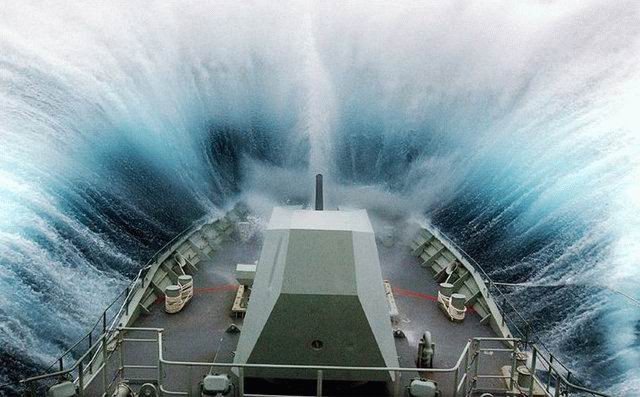
Still unsure about the pace of climate change? Or whether it’s even happening at all? Ask a Rear-Admiral, suggests Eddy Canfor-Dumas
I was invited to speak at a mind-boggling conference recently on climate change and its effects on health and security.
It was organised by the British Medical Journal in the plush London headquarters of the British Medical Association, and it brought together medics, medical and other academics, senior military officers, researchers, figures from the world of business and insurance, and many others, including me.
The morning was spent scaring the bejeezus out of us.
Presentation after presentation, from world experts in their fields, showed how the negative effects of climate change are not just the stuff of future nightmares - they're happening now.
Especially significant was the contribution of Rear-Admiral Neil Morisetti, the MoD/FCO Climate and Energy Security Envoy. That the UK Ministry of Defence regards climate change as an established fact, which warrants the appointment of a rear admiral to spread the message worldwide, should serve as a serious wake-up call to anyone who is still sceptical or unsure. Their US cousins, the Department of Defense, are if anything even more convinced.
Morisetti highlighted the prediction that climate change will have a serious negative impact on the UK - the idea that we'll simply be able to cast off 'Lifeboat Britain' from the rest of the world and enjoy the delights of growing Chardonnay in the Yorkshire Dales is dangerously deluded. We source much of our food from parts of the globe that will either be drying out or regularly inundated with flood waters, and intensifying competition for resources is expected to heighten political and social instability and the risk of violent conflict. The recent riots in England suggest we will not be immune.
Add to this a raft of warnings on interconnected health risks and by lunchtime I was ready to crawl back home and bury my head under the duvet.
I resisted the temptation not just because I was due to speak in the afternoon but because, time and again, speakers from stage and floor kept asking why the urgency of this message was not being heard by policy-makers or the public at large. In fact, post-Copenhagen and 'ClimateGate' the proponents of climate change have lost ground. The issue has slipped out of the news and down the policy agenda, aided by the financial crash and economic slump. It was this question that kept me engaged as much as the chilling excellence of the various presentations.
And as I listened a thought started to grow in my head: We have to tell a better story.
So far, the 'merchants of doubt' have managed to spin a tale of improbability, uncertainty and scepticism that has resonated with the unwillingness of very many people to accept what an overwhelming number of scientists are saying. Their message might be backed up with facts, figures, graphs and tables but as Drew Westen explains in The Political Brain, when it comes to engaging with the public the 18th century philosopher David Hume was right - reason is a slave to the emotions. And the story that connects with the emotions - true or not - will win the day.
My background is story-telling - screenwriting (I've actually written three TV disaster movies) - and I strongly believe that narrative is almost hard-wired into our DNA. It's how we learn, how we make sense of the world. Our personal story - the one we tell ourself about ourself - is what gives our life meaning.
To date, the story of climate change, as told by those who have the vast majority of the facts and figures on their side, is a story of loss; either total loss (the end of human life on this planet) or the loss of much of what we hold dear in the economically advanced parts of the world - air travel, carbon-hungry gadgets, and the freedom to spend, spend, spend on whatever we like. No wonder the merchants of doubt find such an attentive audience.
To convince the sceptics, the undecided and the don't cares that climate change is real, man-made and really very dangerous, we need a story that is deeper, richer and much more powerful than the one currently being told. Warning people, scaring people, is not enough - there has to be a happy ending, sunlit uplands, that will motivate them to take on the challenge ahead and keep at it over many years till a victory is won.
A tall order. But I have a few ideas...
(To be continued)
